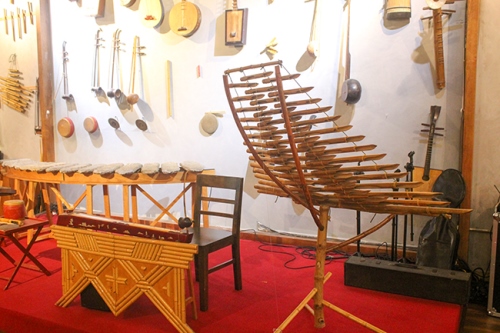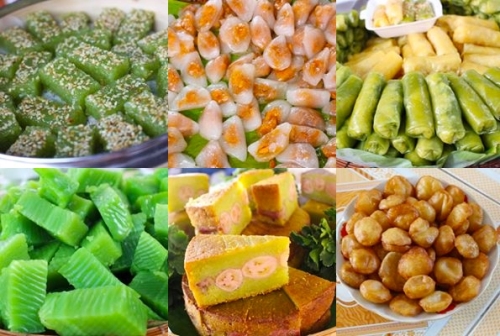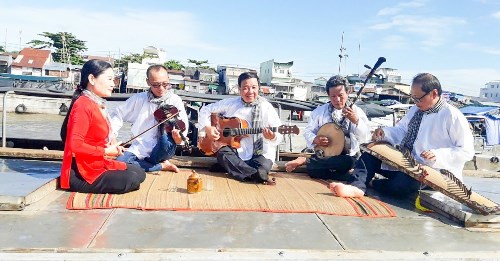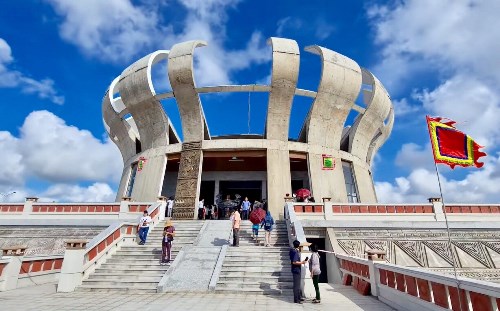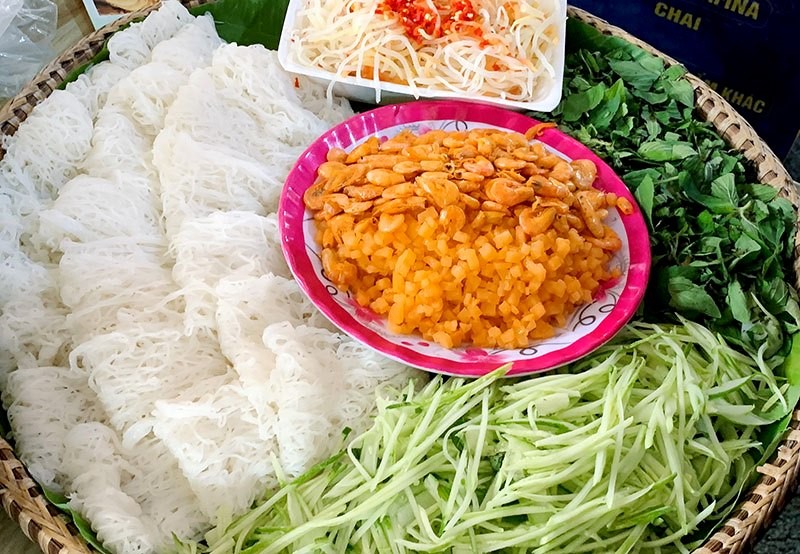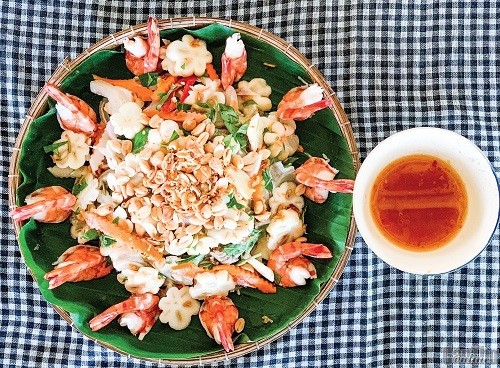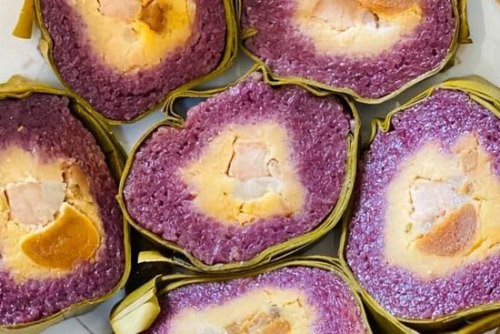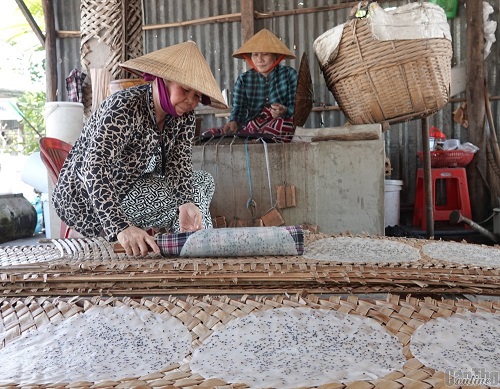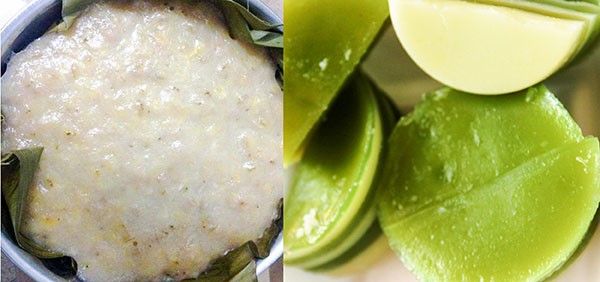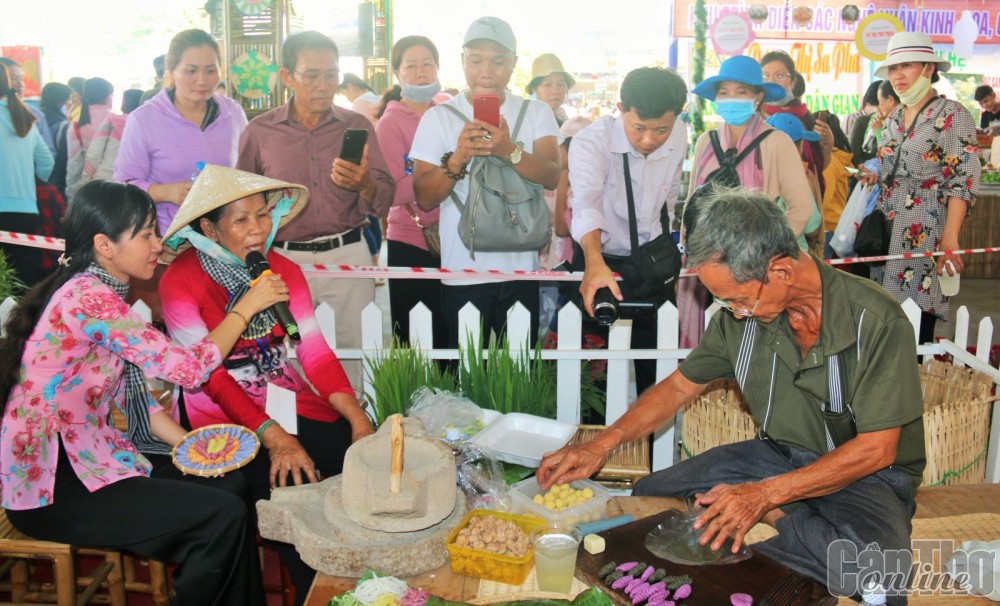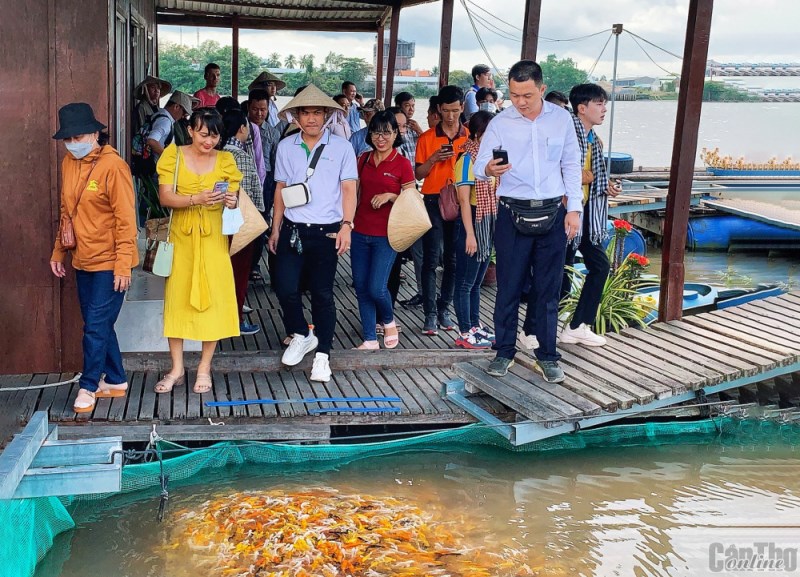
Shaping locally distinctive agricultural tourism products
One of the successful agricultural tourism products that has impressed both local and distant visitors in Can Tho is the tourism on Son Islet (Binh Thuy). This location features an agricultural tourism cooperative with a membership consisting of several dozen households. Developed since 2015, Son Islet has established a unique agricultural tourism model with diverse products and services that strongly reflect the local riverine characteristics. When mentioning Son Islet, travelers immediately think of unique tourism offerings such as flying fish, spoon-fed fish, fish massage, and more. Mr. Ly Van Bon, Deputy Director of the Son Islet Agricultural Tourism Cooperative and owner of the Bay Bon Fish Farm, stated: "We engage in tourism using our cultural capital, our way of life, and our production activity... as possessed by each household. If I have a fish farm, I open it to welcome visitors for experiential tours to learn about various fish species in the Hau River. If Ms. Nam has a garden, visitors can explore the orchard and pick fruits. If Ms. Bay is skilled in traditional baking, visitors can enjoy and learn how to make traditional folk cakes... Each household contributes some products and collaborates in tourism activities. Our farmers engage in tourism based on existing resources, then innovate and develop them into products. For instance, if I have fish, I train them to perform for visitors. The range of products on Son Islet is diverse and continuously refreshed."
In reality, when engaging in agricultural tourism, various garden destinations always seek new and distinctive points to build their products. Mr. Huynh Cong Thong, owner of the garden in Thot Not, stated: "In my garden, besides exploring the grape garden, visitors also enjoy other products derived from grapes. In tourism, each household should have its own unique product, and from there, create a chain of attractive products and services for tourists." Collaboration in the development of agricultural tourism is always essential to generate diverse tourism products. Specifically, the effective development of agricultural tourism linkage models is taking place in Phong Dien. Mr. Pham Van Hoang, owner of the 9 Hong Garden in Phong Dien, explained: "Alongside the fruits in our garden, we also collaborate with neighboring gardens to ensure that visitors always have fruits to pick during their garden tours. For example, this season we have linked with Burmese grape gardens, rambutan gardens, durian gardens... These gardens also collaborate to provide visitors with dining services and experiential games on my premises. Visitors will have a more diverse range of experiences." According to a Burmese grape garden owner in Phong Dien, in the years before engaging in tourism, each crop of berries would yield several million Vietnamese dong, but when linking tourists with the 9 Hong Garden, Mekong Silt Ecolodge, the earnings increased to hundreds of millions of Vietnamese dong. This is because, in addition to selling berries, he can charge tour fees, which also reduces concerns about the depreciation of berries.
Agricultural tourism brings forth numerous benefits for farmers, allowing them to utilize their "home-grown garden" for tourism without needing excessive capital investment, thereby yielding higher profits. However, agricultural tourism still faces several challenges. Some models tend to be self-generated and replicate each other, lacking differentiation and cohesion. Furthermore, certain tourism destinations lack cooperation and fail to share benefits with the community. Promotion, connectivity, and advisory activities remain inadequately directed. Supportive policy mechanisms are lacking as well. Mr. Pham Van Hoang, owner of the 9 Hong Garden, stated, "The difficulty we are currently encountering lies in the land use conversion. According to new regulations, in order to engage in tourism, garden land must be converted, requiring a substantial amount of money. For farmers like us, this is very challenging." Similarly, Mr. Ly Van Bon, owner of the Bay Bon Fish Farm, also shared challenges due to issues with using water surface areas for tourism. Mr. Le Hoang Dung, Vice Chairman of the People's Committee of Phong Dien District, remarked, "The challenge of land use conversion for tourism is a common issue not only in Phong Dien but also in other localities. Therefore, appropriate policy mechanisms are necessary to overcome these obstacles."
Easing Challenges
In recent times, the Vietnam National Administration of Tourism has also highlighted the difficulties and constraints within current agricultural tourism activities. Specifically, it outlines issues related to constructing tourist facilities on agricultural land and converting from agricultural to non-agricultural land for developing tourism infrastructure, particularly robust structures such as accommodation, sanitation facilities, and service areas. Many tourist facilities had to be demolished due to being built on agricultural or forestry land without proper land use conversion, resulting in wastage. In addressing this matter, the proposed Land Law (amendment) project addresses the creation of a legal framework for agricultural business models, rural development in the right direction, and compliance, ensuring sustainable tourism development through efficient and economical land use.

Burmese grape garden in Phong Dien.
There is a common reality in our country's agricultural tourism development, which is the lack of a strategic approach. Therefore, it is imperative to promptly incorporate agricultural and rural tourism planning into the overall national tourism system planning. Simultaneously, there must be mechanisms and policies to facilitate the growth of agricultural tourism, particularly in terms of land policies and attracting investment into the tourism sector. Tailored policies based on the fundamental characteristics of each locality should be established accordingly. As such, the Department of Culture, Sports, and Tourism of Can Tho City is currently advising the City People's Council to formulate a resolution on policy mechanisms for agricultural and river tourism. This is considered a crucial step in creating favorable conditions for the local development of agricultural tourism.
Currently, Can Tho is implementing the project "Development of Agricultural Tourism in Can Tho City for the 2021-2025 period, with a vision to 2030." In addition to traditional forms of agricultural tourism, Can Tho is also expanding into urban agricultural tourism and high-tech agricultural tourism to extend the duration of visitors' trips. The project focuses on developing agricultural tourism in areas such as Phong Dien, Cai Rang, Binh Thuy, Thot Not, and gradually expanding to peripheral regions like Thoi Lai, Co Do, and Vinh Thanh by 2030. Within this framework, two selected models for agricultural tourism implementation are visitor-focused agricultural tourism and a pilot model of agricultural tourism combining visitor experiences with accommodations at Can Tho Farm and Bao Gia Trang Vien.
The People's Committee of Can Tho City has issued Plan No. 107/KH-UBND regarding the implementation of the rural tourism development program within the context of building new rural areas until 2025 in the city. This plan outlines the determination to "promote sustainable tourism development on the basis of green growth, linked with the development of rural tourism, One Commune One Product (OCOP) products, and the values of local cultural resources, as well as the strengths of each locality. Simultaneously, it aims to execute promotional activities, enhance tourism promotion, and construct a network of exemplary rural tourism destinations and products connected with the development of new rural areas."Specifically, Can Tho has set the objective to develop and standardize rural tourism destinations and products by 2025, striving for at least one recognized tourist destination associated with the advantages of agricultural culture, traditional crafts, or the local ecological environment. Additionally, the plan aims for 50% of rural tourism service businesses to be recognized as meeting the standards for serving tourists. To achieve these goals, Can Tho will focus on the development of high-quality, diverse, and distinctive tourism products aligned with the city's unique characteristics. These products will offer experiential and high-added-value features according to market orientation and the specific needs of various target groups. The plan also encompasses the cultivation of a high-quality rural tourism workforce. Furthermore, the plan involves the establishment and implementation of pilot models for rural tourism development, emphasizing eco-friendly, responsible, and sustainable tourism practices.
Source: Can Tho News - Translated by Hoang Dat





